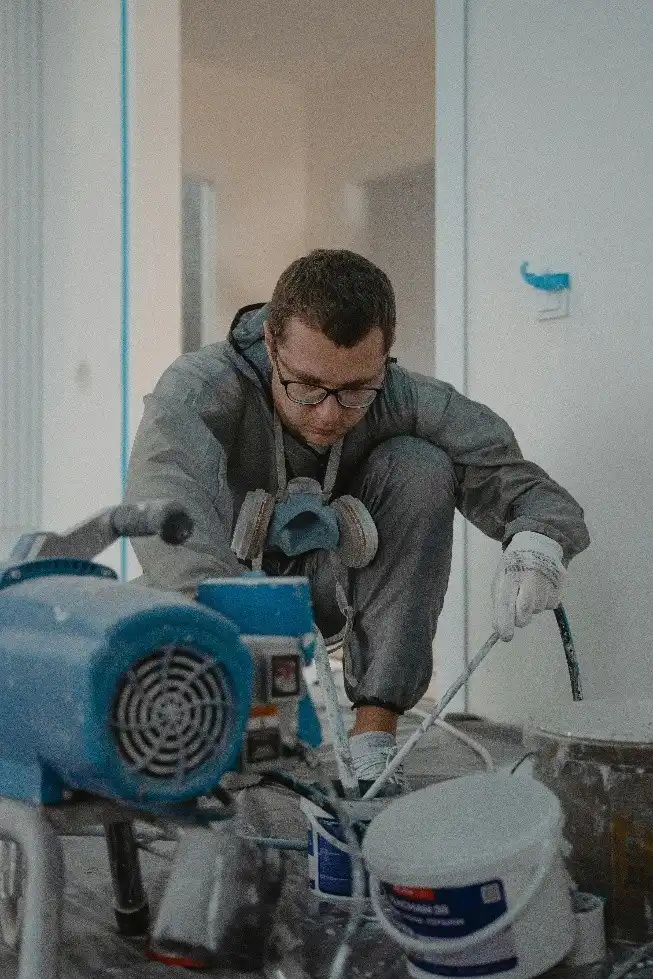
In a recent survey, more than half of sellers admitted to not disclosing a known problem with their property. Although this is just one survey, the point bears noting. Buyers should probably expect to find issues with their homes. A home buyer can sue over a material defect that wasn’t disclosed by the seller.
How Common Is a False Disclosure Statement?
In normal real estate sales between strangers (“arm’s length transactions”), a widely reported survey showed:
- 95% of buyers found unpleasant surprises after moving in — which the home seller had not disclosed.
- Almost all of the sellers involved owned up to keeping quiet about the problems.
- Three-fourths of the sellers admitted to purposefully hiding problems with their homes.
All this was revealed in a study by Cinch Home Services, which polled hundreds of home sellers and the corresponding buyers.
What Are the Most Common Issues?

Water damage comes up a lot. So do repairs or upgrades made without permits. This could be a big issue when contractors are hard to get, and materials keep going up in cost.
In most home sales, buyers hire licensed inspectors to create independent reports on the homes they buy. Right off the bat, it’s important for a prospective buyer to prompt the home inspector to look for signs of past water infiltration and DIY home improvements.
The home seller must disclose common defects, such as:
- Rotted wood or roof leaks.
- Cracks in the building or driveway.
- Any detected health hazards.
- Inadequate ventilation or windows.
- Systems (wiring, water, sewer, plumbing, HVAC, water heater, etc.) in need of replacement or repair.
The buyer can make the purchase contingent on the home’s condition. It’s important not to waive this contingency.
Once you know about the defect, your agent can get the seller to agree to take care of repairs or give you the funds to do so.
If the matter is serious, a buyer can back out before closing. Experienced real estate agents know how to support and guide a buyer through this scenario, and resume house hunting.
Note: A home inspector must follow the state’s consumer protection provisions. If the inspector missed a material defect, the company may owe the buyer a refund. Inspectors can be additionally liable for negligence.
What Does a Seller Have to Disclose on the Typical Form?
Check state law. Usually the standard form needs to disclose everything mentioned in the above section. It may also ask the seller to declare:
- Upgrades or structural changes to the home, along with the seller’s level of knowledge related to home improvements.
- When the property was last occupied by the seller.
- The condition of the roof, basements, crawl spaces.
- Structural problems.
- Problems with equipment and appliances included in the sale.
- Drainage and boundary matters.
- Hazardous conditions.
- Presence of a homeowners’ association.
- Legal issues affecting the title or use of the property.
And sellers must notify their buyers when something significant changes after the initial disclosure.
What’s a “Material Defect”?
There’s wear and tear in most any home that someone sells. To some extent we all expect that. There are always little things that the buyer’s agent asks the seller’s agent to work out. Then the seller repairs whatever it is, or shaves a little off the price if that’s fair.
In short, when minor issues crop up, they are usually no cause for a buyer to be upset with the seller. Even systems at the end of their predicted lifespans are to be expected.
Some necessary fixes, though, are more than minor. These are called material defects, and are defined by state law. In Pennsylvania, for example, a material defect is something that “poses an unreasonable risk to people on the property” and it has to be highlighted on the disclosure form.
Home inspectors focus on flaws in the home that amount to material defects. So, your home inspection is critical. Be sure to attend it and ask questions, so you have a heads-up on possible problems.
What’s the Role of a Seller’s Agent in Disclosure?
State laws lay out any duties of real estate sellers to fill out standard disclosure forms for their buyers.
Where required by law, filling out the disclosure form is mandatory, but it is not the agent’s job. The seller’s agent should have the seller complete the disclosure form.
Once the seller has filled in the disclosure form, the seller’s agent should go over it. Then the agent must present a dated, signed copy of the form to the buyer before the signing of a purchase agreement.
If the agent knows that the seller isn’t revealing an existing material defect, then the game changes. The agent has a duty to promptly disclose the defect and explain it to the buyer.
Although some sellers’ agents may be tempted to let it slide, that’s a mistake. If the homebuyer can determine that the agent knew the undisclosed problem was there, the buyer could potentially file a suit in small claims court against the seller’s agent and the seller.
What Legal Basis Exists to Sue a Seller for Failure to Disclose?
A buyer who believes the seller decided not to reveal a material defect can call a local attorney for a consultation. A lawyer with some degree of experience in home defects is best. This expert can explain the buyer’s rights under state law. If appropriate, the lawyer can write up a letter to the home’s former owner, explaining the problem, and requesting reimbursement for the repair.
The lawyer can tell a deed holder what claims might be available if the seller won’t resolve the matter reasonably. An improper failure to disclose could be the cause of a lawsuit based on:
- Breach of contract.
- Misrepresentation, whether deliberate, negligent, or involving reckless disregard for the truth.
- Innocent misrepresentation, if the law allows this claim. Usually, the party bringing the legal action has to show the court that the seller knew, and didn’t tell.
The basis for a lawsuit depends on what state law says, what the disclosure form requires, and the facts in a given situation. Be mindful of your state statute of limitations (it could say, for example, that an action must be brought within two years).
Of course, the buyer can’t sue the past owner over material defects that develop after the buyer becomes the homeowner. Problems at any stage might be covered by the homeowner’s insurance policy, though. Whether it’s worth making a claim is a question for the homeowner to discuss with the insurance broker.
Know Your Rights.
And — just in case — know your remedies.
Supporting References
68 Pa. C.S §§7101-7512: Pennsylvania Residential Real Estate Transfers Law (encompassing the Real Estate Seller Disclosure Law and the Home Inspection Law).
Melissa Dittmann Tracey for the National Association of REALTORS® via REALTOR Magazine: Top Claim Against Agents – Failure to Disclose (Nov. 7, 2022).
Cinch Home Services: Ninety-Four Percent of Sellers Don’t Disclose Property Defects (Jul. 21, 2022).
Deeds.com: A Seller Wouldn’t Hide a Defect, Right? (Oct. 12, 2022; internal citations omitted).
And as linked.
More on topics: Agents’ fiduciary duties, Careless contractors
Photo credits: Jeff Christiansen, via Flickr / CC BY-SA 2.0; and Tima Miroshnichenko, via Pexels/Canva.
